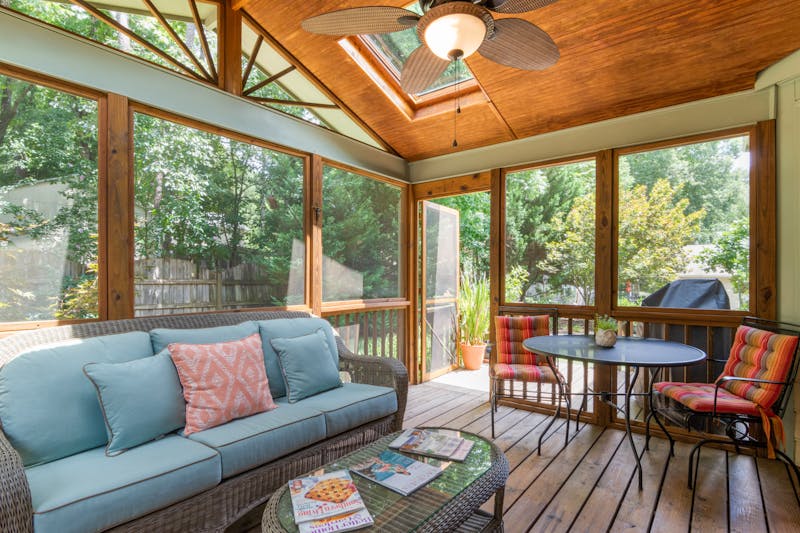Garden rooms have become increasingly popular as versatile spaces for work, relaxation, and leisure. With their cozy ambiance and connection to nature, it’s no wonder that many people wonder whether they can take their garden room experience a step further and use it as an overnight retreat. The question arises: Can you sleep in your garden room?
The short answer is yes, you can sleep in your garden room. However, several factors need consideration to ensure comfort, safety, and practicality.

Comfort and Insulation: Before planning a sleepover in your garden room, assess its comfort level and insulation. Since garden rooms are often built as extensions of the main house or as separate structures, their insulation levels may vary. Proper insulation is essential to regulate temperature and ensure a comfortable sleeping environment throughout the year. Insulated walls, floors, and ceilings, along with double-glazed windows, can help maintain a cozy atmosphere and minimize heat loss during colder months.
Weather Resistance: Consider the weather conditions in your area and how they might affect your sleep experience in the garden room. If your region experiences extreme temperatures, high humidity, or heavy rainfall, ensure that your garden room is adequately weatherproofed to withstand the elements. Waterproofing measures, such as sealing gaps and applying weather-resistant coatings to surfaces, can help protect the interior from moisture and humidity, ensuring a dry and comfortable sleeping environment.
Furnishings and Bedding: Choose suitable furnishings and bedding for your garden room to enhance comfort and relaxation. Opt for a comfortable mattress or sleeper sofa that provides adequate support for a restful night’s sleep. Additionally, invest in high-quality bedding, including sheets, blankets, and pillows, to create a cozy and inviting sleep environment. Consider incorporating soft lighting, curtains, or blinds to adjust the ambiance and promote relaxation before bedtime.
Ventilation and Air Circulation: Proper ventilation and air circulation are crucial for maintaining a healthy indoor environment in your garden room, especially when sleeping overnight. Ensure adequate ventilation by installing windows that can be opened to allow fresh air to flow in and stale air to be expelled. Additionally, consider using fans or air purifiers to improve air circulation and quality, particularly if your garden room lacks natural ventilation or if you’re sensitive to allergens or pollutants.
Privacy and Security: Evaluate the privacy and security features of your garden room to ensure a safe and peaceful sleep experience. Install window coverings or privacy screens to shield the interior from prying eyes and create a sense of seclusion. Consider adding locks or security measures to deter unauthorized access and provide peace of mind while you sleep. If your garden room is located in a shared or public space, communicate with neighbors or household members to respect your privacy during sleeping hours.
Legal and Zoning Considerations: Before using your garden room for overnight stays, familiarize yourself with any legal or zoning regulations that may apply in your area. Some jurisdictions may have restrictions or requirements regarding the use of accessory structures for residential purposes, including sleeping accommodations. Check with your local planning or building department to ensure compliance with applicable laws and regulations before converting your garden room into a sleep space.
In conclusion, sleeping in your garden room can be a delightful and rejuvenating experience, provided that you take the necessary steps to ensure comfort, safety, and practicality. By assessing the insulation, weather resistance, furnishings, ventilation, privacy, security, and legal considerations, you can create a cozy and inviting sleep environment in your garden retreat. Whether it’s an occasional slumber under the stars or a regular bedtime routine, your garden room can offer a peaceful sanctuary for rest and relaxation amidst the beauty of nature.


